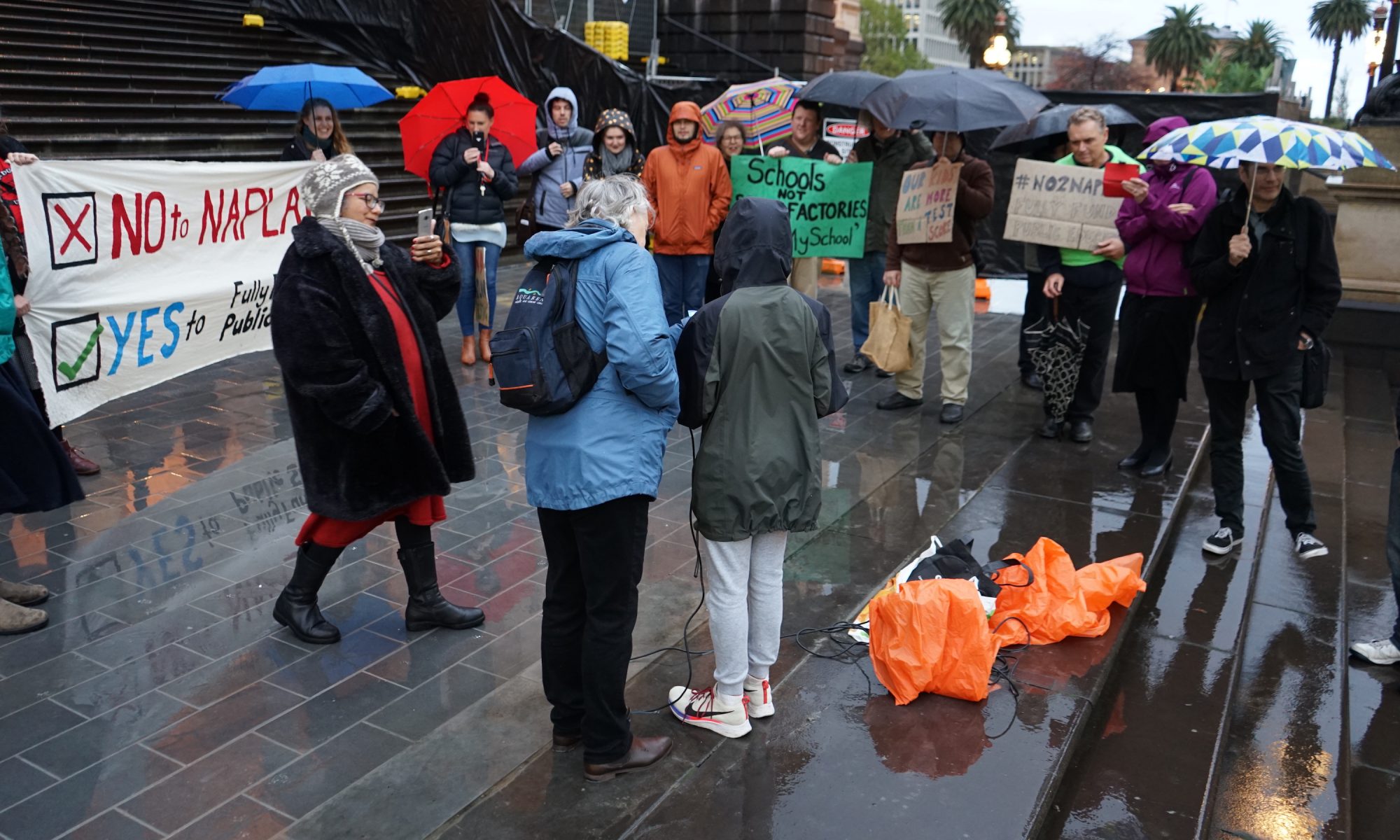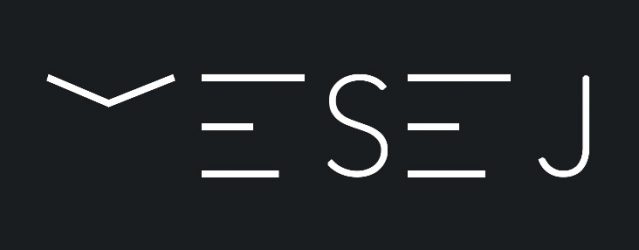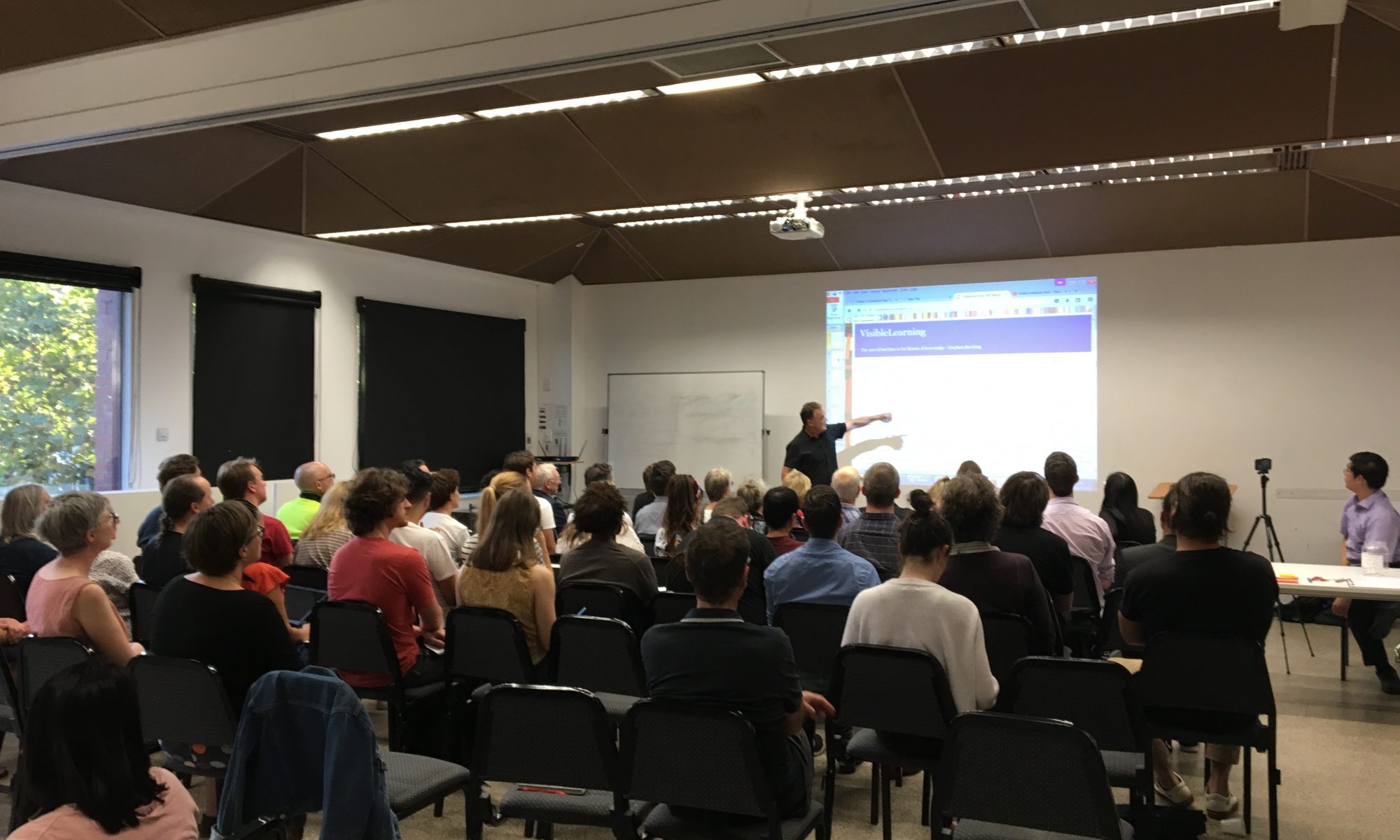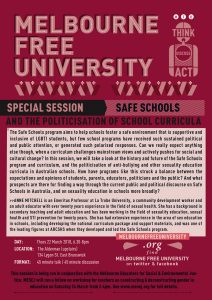Upcoming Events
As all our events are held on the land of the Kulin Nation, we pay our respect to their Elders, past, present and future, in recognition of their continuing sovereignty.
We are having our next online monthly organising meeting on Saturday the 17th of October at 2pm. As usual, it will be Victorian public school focused. But we’re interested in forming connections across educational settings and justice issues, so if you’re keen to meet us and share ideas send us an email at mesejforum@gmail.com and we’ll send you the meeting link and password.
You can also email us to propose an event idea or collaboration.
Past Events
2020 Events
Teacher and Education Support Worker Climate Action Meeting
DAY: Thursday, 12 March 2020
TIME: 6-8.30pm
LOCATION: Frank Tate Room, Level 9, 100 Leicester Street, Parkville, 3053, Melbourne Graduate School of Education
Teachers and education support workers have an important role to play in fighting for climate action. As unionists and educators, what we say and do in the face of this climate emergency matters. Come along to discuss:
*Initiatives teachers and education support workers can take to strengthen the public push for climate justice.
*Increasing teacher and ES worker participation at the May 15th School Strike for Climate.
*Building on support for climate activism in the education unions.
*What real climate action would mean.
This event will start at 6pm, with snacks and tea and coffee, speakers will begin at 6:30pm.
Speakers will include:
-Alicia Flynn: Teaching across tertiary, primary, secondary, early childhood and community contexts, Alicia is a pedagogical leader engaged with climate pedagogies
-Anthony James: Mentor with School Strike 4 Climate, part of the movement since 2018
-Lilly Murphy, year 11 student climate striker
-Lucy Honan, secondary school teacher, AEU and MESEJ activist
Then there will be lots of time for discussion and planning!
All teachers and ES welcome!
This discussion will take place on the land of the Kulin Nation. We acknowledge their continuing sovereignty and pay our respect to their Elders, past, present and future.
The venue is wheelchair accessible. Lift to Level 9. Frank Tate Room end of corridor to the left.
Facebook event link: https://www.facebook.com/events/331814257754899/
For more info: mesejforum@gmail.com, 0404728104
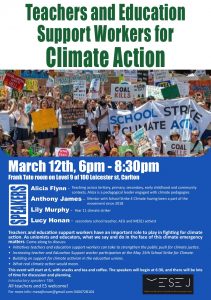
COVID, Rankings and Inequality: Isn’t it Time to Axe ATAR?
DAY: Sunday, 4 October 2020
TIME: 4-5.30pm
LOCATION: (Online) Join Zoom meeting here – https://zoom.us/j/98901770395?pwd=Z0tLaUYvSytUVHpRU216OWc3OVZBZz09
Victoria’s VCE students have had a year like no other, with school shutdowns and other COVID related disruptions throwing studies into disarray, and making any ranking of their achievement incoherent. This is not a unique experience. School systems around the world have struggled – and failed – to justify their ranking of the 2020 leavers cohort. Such international experience has motivated many Victorian universities to consider abandoning the use of ATAR for determining course entry.
COVID did not create the inequalities, pressures and educational distortions in ATAR rankings. It has only exacerbated them.
Is there a way to abandon ATAR, and create equitable, well funded tertiary education pathways for school leavers? Join our speakers to discuss the problems with ATAR and the alternatives to it.
Speakers:
Peter Hutton, launched petition to ‘Cancel ATAR in 2020’. Founder and director of the Future Schools Alliance, former principal of Templestowe College.
Rob Behan, UK teacher and National Education Union Rep at Newham Sixth Form College in East London. Involved in organising ‘Teachers not Tories’ protests against the algorithm to determine GCSE results.
Lucy Honan, AEU Vic State Councillor, high school teacher.
Facebook event link: https://www.facebook.com/events/2835407863354456
For more info: mesejforum@gmail.com
2019 Events
Workshop – Teachers Talking Back: Debunking Hattie & the “High Impact Teaching Strategies”
DAY: Thursday, 28 March 2019
TIME: 6.30-8pm
LOCATION: Melbourne’s Multicultural Hub, 506 Elizabeth St, Melbourne
Educational entrepreneurs like John Hattie say the standardisation of teacher practice into measurable, universally applicable strategies is an evidence based way to improve teacher quality, which will guarantee the learning of the most disadvantaged students. However, educators, academics and statisticians have condemned Hattie’s research as “profoundly wrong”, pointing out numerous calculation and category errors, and debunking the underpinning logic of his research – that averaging effect sizes across diverse studies can provide an objective measure of the effectiveness of a teaching strategy.
In the workshop we will focus on John Hattie’s best-selling book Visible Learning (2009), which is the main “evidence base” of the Victorian Education Department’s “High Impact Teaching Strategies” (HITS). We will equip participants with the tools to critically analyse some of Hattie’s most controversial arguments – that class size, disruptive student behaviour and welfare policies do not make a significant impact on student learning.
We will also discuss the political context behind the increasing push for effect size driven education reform, while systemic issues like class sizes, teacher workload and funding inequality are ignored. We will then provide space for teachers to discuss the impact of the rising HITS hegemony in our schools and share strategies to regain control of our work.
Presenters: George Lilley, author of the Visible Learning B log and Secondary Maths teacher; Fiona Taylor, Secondary Humanities and Science teacher; Lucy Honan, Secondary Humanities and English teacher
Facilitator: Bonnie Zuidland, Secondary Philosophy and Humanities teacher
Speak Out Against NAPLAN rally
DAY: Friday, 10 May 2019
TIME: 4.45pm
LOCATION: Steps of Victorian Parliament House, Spring St
Our demands:
-End NAPLAN testing
-Shut down MySchool website
-Fully fund public schools to provide a rich, challenging and supportive education for every student
Speakers include:
AEU state councillors and public school teachers
Prof. Marie Brennan – education academic and former teacher
Elizabeth Wheeler – parent withdrawing child from NAPLAN
Carl Campbell – student at Merri Creek Primary School
As the 2019 NAPLAN testing season begins, teachers, psychologists, academics, unions, parents, students and politicians continue to condemn NAPLAN for its devastating impact on our education system. The tests produce dangerously misleading data and have led to a narrow, mind-numbing curriculum and socially segregated, unequally funded schools. In the UK and New Zealand, Labor parties are taking a stand against the standardisation and testing agenda. But so far, in Australia. neither the Labor nor Liberal Party have committed to ending NAPLAN and the Victorian State Labor government continues to measure school performance using debunked NAPLAN results.
Join teachers, support staff, students, academics and parents to share your experiences and/or stand in solidarity and call for an immediate end to NAPLAN.
Bring sub branch union banners, your own placards, and wear union t-shirts.
You can also oppose NAPLAN by:
-Withdrawing your child from NAPLAN and let your school, friends, and politicians know why
-Supporting teachers to speak out against it – in some circumstances this can be a risk to our jobs!
-Posting about this issue and use the hashtages #No2NAPLAN and #Yes2PublicEdFunding
-If you’re a teacher in any sector, signing this statement below and share it with colleagues:
https://sites.google.com/view/teacherssaynottonaplan/home
Organised by MESEJ – Melbourne Educators for Social and Environmental Justice
Contact Lucy or visit mesej.org for more information 0404728104
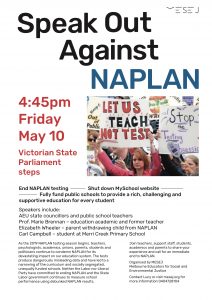
USA Teacher Strikers: Lessons for the Fight for Public Education
WHEN: Saturday, July 27, 2019, 2–4pm
WHERE: RMIT, Building 80 (445 Swanston St), Floor 9, Room 10. (80.9.10)*
*venue wheelchair accessible
Teachers and education workers across America are fighting back for the life of public education. The strike wave started in the heart of Trump territory in 2018 and has now spread across six states. Rank and file education workers have organized strike actions, gaining victories to defend and increase public education spending. They are fighting against deportations of migrant students, winning support services, wage rises and better teaching conditions. Join MESEJ to hear from some of the leaders of this strike wave and to discuss how we can apply the lessons to our struggle for Public Education in Australia. All teachers, education workers, parents, students and unionists welcome.
Speakers via Skype:
Brendan Muckian-Bates: Social studies teacher in West Virginia, organiser of the WV teacher trike in 2019
Joel Laguna: 6th Grade LA Teacher and organiser of the LA teacher strike 2019
Debby Pope: Founder and leader of the United Rank & File educators in Chicago, organiser at the Chicago Teachers Union
Program:
2:00-2:45 -Brendan, Joel and Debby to speak via skype about their experiences; how they organised, their successes, and where to next.
2:45-3:15 – Questions from participants
3:15-4pm – Snacks and discussion amongst participants offline about how we can apply the experiences to our context.
End of Year Picnic
DAY: Sunday, 22 December 2019
TIME: 2-6pm
LOCATION: Flagstaff Gardens
We’re looking forward to winding up the school year so we can rest and recharge our batteries. When Feb 2020 rolls in, we’ll be back organising for climate justice, fair working conditions for teachers, and an end to NAPLAN, the MySchool website and the exclusion of already marginalised and disadvantaged children from our schools.
We appreciate your support of this work and would love to celebrate with you at a picnic in Flagstaff Gardens at 2pm on Sunday the 22nd of December. See the flyer below for more details.
Come unwind and celebrate the end of a big year!
Everyone welcome! No teaching credentials required 🙂
Bring your children, friends and partners.
We’ll bring:
Beer
Cider
Mimosas
Snacks
Games
Kids activities
Frisbees
And a donations bucket to raise money for MESEJ organising costs in 2020 – website, room hire, posters, etc.
We’ll be on the south-east side of the gardens, closest to Flagstaff Station, with a MESEJ sign to help you spot us.
Let us know you’re coming via our Facebook event and feel free to share the event and flyer with your friends.
2018 Events
Public Discussion – Safe Schools and the Politicisation of School Curricula
This month, MESEJ will be co-hosting a public discussion on Safe Schools with Melbourne Free University. We will be joined by Emeritus Professor Anne Mitchell. This discussion will complement our March 24 workshop on how teachers can help provide safe and inclusive learning spaces for trans and gender diverse students.
DAY: Thursday, 22 March 2018
TIME: 6.30-8pm
LOCATION: The Alderman (upstairs)
134 Lygon St. East Brunswick
FORMAT: 45 minute talk / 45 minute discussion
The Safe Schools program aims to help schools foster a safe environment that is supportive and inclusive of LGBTI students, but few school programs have received such sustained political and public attention, or generated such polarised responses. Can we really expect anything else though, when a curriculum challenges mainstream views and actively pushes for social and cultural change? In this session, we will take a look at the history and future of the Safe Schools program and curriculum, and the politicisation of anti-bullying and other sexuality education curricula in Australian schools. How have programs like this struck a balance between the expectations and opinions of students, parents, educators, politicians and the public? And what prospects are there for finding a way through the current public and political discourse on Safe Schools in Australia, and on sexuality education in schools more broadly?
ANNE MITCHELL is an Emeritus Professor at La Trobe University, a community development worker and an adult educator with over twenty years experience in the field of sexual health. She has a background in secondary teaching and adult education and has been working in the field of sexuality education, sexual health and STI prevention for twenty years. She has had extensive experience in the area of sex education in schools, including developing the national curriculum package and support materials, and was one of the leading figures at ARCSHS when they developed and led the Safe Schools program.
Workshop: How Safe Can Schools Be? Constructing and Deconstructing Gender in Education
DAY: Saturday, 24 March 2018
TIME: 2-4pm
LOCATION: Frank Tate Room, Level 9, 100 Leicester Street, Parkville, 3053, Melbourne Graduate School of Education
Workshop description: What are the experiences of trans and gender diverse people at school? How do we hear these experiences? How safe can we make schools and other educational institutions for LGBTIQA+ people? What possibilities exist for deconstructing and undermining cisnormativity and heteronormativity in educational spaces?
This workshop will explore how educators are often implicated in constructing a western, colonial, patriarchal, binary gender system, how this impacts our students and communities, and what we can do together to dismantle this oppressive gender system towards creating safer learning spaces for LGBTIQA+ people.
Workshop facilitator: Nick Carson is a genderqueer, trans femme educator belonging to the settler colonial occupation of Narrm/ Melbourne. She wishes to pay respect to Wurundjeri and Boonwurrung people as the rightful, sovereign owners of this land.
Public Discussion – Teaching Respectful Relationships? On the Creation and Transformation of Curricula and Culture in Schools
MESEJ will again be teaming up with Melbourne Free University, to host a pubic discussion. This time, we’ll be talking about the new respectful relationships curriculum. This discussion will complement our March 24 workshop on how teachers can enact respectful relationships curriculum in a way that engages and empowers students with diverse genders and sexualities.
DAY: Thursday, 19 April 2018
TIME: 6.30-8pm
LOCATION: The Alderman (upstairs)
134 Lygon St. East Brunswick
FORMAT: 45 minute talk / 45 minute discussion
What role can (and should) schools play in fostering cultural change around relationships, sex and gender norms? In this panel discussion, we’ll take a look at the history of respectful relationships education in Victoria from school, government and community sector perspectives, and we’ll explore the impact of mainstreaming feminist approaches to violence prevention into mainstream contexts like education. We’ll consider the tensions that emerge when content is more radical than the dominant curriculum and challenges commonly held perceptions about sex and relationships, the importance of working with and empowering young people through these programs, and we’ll hear from a school principal about the opportunities and challenges of leading social change within a school community. Join us, and bring your young people!
>EMILY CASTLE works across education, writing, policy and advocacy and has been involved with the Undercurrent Community Education Project for three years.
>>EMILY MAGUIRE is the CEO of Domestic Violence Resource Centre Victoria and designed and led Our Watch’s innovative new Respectful Relationships Education in Schools project which informed the model currently being rolled out in Victorian schools. Emily also developed a range of resources for young people, including Sex, Love and Other Stuff, an award winning respectful relationships resource for young men.
>> JEREMY LUDOWYKE is the Principal of Melbourne High School and the longest serving government secondary school Principal in Victoria. He has been an activist and researcher in social inclusion and equity in education.
Workshop – Violence Prevention and Respectful Relationships Education
DAY: Saturday, 21 April 2018
TIME: 2-4pm
LOCATION: Room L108, 100 Leicester Street, Parkville, 3053, Melbourne Graduate School of Education
Workshop description: With the roll out of the Victorian Respectful Relationships curriculum, teachers are being called on to deliver respectful relationships and violence prevention education. In addition to running discussion-based workshops for young people exploring the ‘gender and identity’ and ‘positive gender relationships’ elements of the Respectful Relationships curriculum, Undercurrent offer professional development for teachers and school staff.
Our professional development program focuses on building understanding of the prevalence of violence and attitudes and beliefs in our community that enable violence, with a particular focus on family and sexual violence. We address the attitudes and beliefs of participants as a starting point to explore strategies they can use to support students to develop skills to create respectful relationships.
This workshop will provide techniques and activities for teachers working with secondary school students. We will also highlight the differences in facilitating respectful relationships learning with younger students and suggest approaches more appropriate to a primary school setting
Workshop facilitator: Undercurrent is a non-profit organisation focused on building healthy relationships and challenging beliefs and actions that enable violence, with an emphasis on interpersonal and gendered violence.
website: www.undercurrentvic.com
email: info@undercurrentvic.com
Film Night – Indigenous Youth Incarceration and Education
Indigenous young people make up 53% of Australia’s incarcerated youth population, yet less than 6% of 10 to 17-year-olds in Australia are Indigenous. In Victoria, Indigenous young people make up only 1.6% of the population aged 10-19, but still represent 16% of those incarcerated or serving a community service order. On average, they are 12 times more likely to be locked up than their non-Indigenous counterparts.
What role does education play in the lives of young Indigenous people before, during and after their time in detention? Is a school-to-prison pipeline operating here in Victoria? What needs to change within the education and criminal justice systems to keep Indigenous young people out of detention?
We’ll begin exploring this issue through two films created nearly 30 years ago, which offer historical context, yet are most striking for the lack of progress they reveal when we consider the state of our criminal justice and education systems today.
Special Treatment: Locking Up Aboriginal Children (1991) – This documentary looks at the experiences of Aboriginal children and teenagers contending with over-policing, police harassment, and a criminal justice system that is far more likely to sentence them for petty crimes than their white counterparts. Directed by Margaret Anne Smith, in collaboration with Chris Cunneen, Kevin Williams and Lydia Miller.
Blackout: Education (1991) – Blackout was the first program ever produced by ABC’s Indigenous Programs Unit. This episode reveals the colonial underpinnings of the education system in Australia and asks Kooris to voice opinions on their own personal educational experiences.
When: 6.30-8.30pm, Wednesday, 25th of July, 2018
Where: Room 56.04.81, Building 56, RMIT, 115 Queensberry St, Carlton, 3053
Public Discussion – Indigenous Youth Incarceration and Education
In a panel discussion moderated by Natalie Ironfield, three Indigenous educators – Brendan Murray, Corallanne Pohlman and Seth Nolan – will reflect on their experiences working inside youth detention centres and consider the connections between Indigenous youth incarceration and education.
This forum will be co-hosted by Melbourne Educators for Social and Environmental Justice (MESEJ) and Arena. It is free and open to all members of the public. We acknowledge the Wurundjeri people of the Kulin Nation as the rightful, sovereign owners of the land on which we will meet.
When: 6.30-8pm, Wednesday, 8 August, 2018
Where: Room 080.02.002, Building 80, RMIT University, 445 Swanston Street, Melbourne
Panellists:
Brendan Murray is the Director of Article 26 Education Consultants. He is the former Executive Principal of Parkville College, the Victorian Government School for all young people detained in custody within Victoria. He is also the former Principal for the Pavilion School in northern metropolitan Melbourne. In 2009, Brendan was recognised with the Inaugural Australian Government Closing the Gap Award for his contribution to building trust and partnerships between Aboriginal and Torres Strait Islander people and other Australians. In that same year, he was also recognised as the Outstanding Secondary School Teacher in Victoria. In 2014, he was recognised by Monash University as a Distinguished Alumni by the Education Faculty. Brendan is of Yuin and Irish descent.
Corallanne Pohlman is a proud Murri woman from Far North Queensland. She was born and raised on Boonwurrung Country, though her family ties are to Yidinji country and her grandmother was born on Palm Island. Her experiences studying education at university, working as a Youth Justice Worker in a custodial setting and receiving a late ADHD diagnosis as a young adult have led her to question the effectiveness of the current education system for Aboriginal children. She is particularly concerned about the ability of university educated practitioners to create culturally safe spaces for Aboriginal students and the lack of the accountability of education workers and policy-makers for the longstanding school-to-prison pipeline operating throughout Australia.
Seth Nolan is a Gunditjmara man raised on Jarra Country with an ongoing connection to the Kulin Nation. With a background of education and family therapy, he is now the Aboriginal Program Coordinator at Parkville College, facilitating cultural programs for Aboriginal young people in custody. Outside of work, Seth and his brothers run a not-for-profit organisation Tongberang’i Ngarrga Inc., meaning ‘Born to Dance’ in Woiwurrung. Its purpose is to enable Aboriginal people of all ages to connect with one another, while expressing Aboriginal culture to the wider community through the medium of electronic dance music.
Moderator:
Natalie Ironfield is a proud Dharug woman who has been living in Naarm since 2014. Natalie is a prison abolitionist and works as a researcher and educator at The University of Melbourne. Outside of the academy, Natalie has been involved with the coordination of the Indigenous Group of Learning at Port Phillip Prison, a program established to provide educational and cultural support to incarcerated Aboriginal and Torres Strait Islander men. Natalie is passionate about highlighting the impact of incarceration on the health and wellbeing of Aboriginal and Torres Strait Islander individuals, families and communities, and advocates for alternatives to punishment-based forms of justice.
Organising Meeting – Indigenous Youth Incarceration and Education
After hearing the insights and experiences of Indigenous educators and young people about how the school-to-prison pipeline operates in Australia, we encourage Melbourne-based educators and others who attended the recent film night and panel discussion to come together, reflect on what we’ve learnt and plan our next steps in response to this issue.
Discussion will focus on what we can do within our schools and other educational settings, as well as how we can engage with the criminal justice system and influence state and federal government policy. There is scope for coordinating a broad campaign, so we encourage people interested in forming alliances with educators to attend.
When: 2-4pm, Saturday, 18th of August, 2018
Where: Room 105, Level 1, 100 Leicester Street, Parkville, VIC, 3053 (Melbourne Graduate School of Education)*
*This venue is wheelchair accessible. Please let us know if you have any other accessibility questions or requirements.
Email mesejforum@gmail.com for more information.
Organising Meeting – AEU elections – Campaigning for a stronger union
MESEJ is co-hosting a meeting for rank and file members who are interested in campaigning for a left ticket in the AEU elections. All AEU members interested in helping are welcome to come to this meeting.
We will discuss a political platform, how the elections work, what we want to achieve, and next steps.
A left ticket could represent a push for a union that:
– Says a clear “No” to NAPLAN, MySchool and all testing tools and educational fads that reduce students and teachers to data chasing.
– Is not afraid to take industrial action to win serious improvements to conditions, prioritising smaller classes and more preparation time. The future of public education depends on us doing so.
– Fights for trust, respect, and decision making control over school decisions for teachers and Education Support Staff. Our union must stand up to principals (including AEU principals) who bully staff and undermine union won conditions.
– Actively campaigns and engages with schools to achieve sufficient funding and policy reforms to make schools inclusive of all students, particularly Indigenous students who experience unacceptably high rates of school exclusion and incarceration
– Stands up against racism, sexism and homophobia in our schools and society. While the right is on the offensive against African students, Muslims, refugees and anti-bullying programs for LGBTI students, education unionists must act.
These are some ideas to start us off, but to be discussed at the meeting.
When: 6-7.30pm, Thursday, 23rd of August, 2018
Where: Room 106, Level 1, 100 Leicester Street, Parkville, VIC, 3053 (Melbourne Graduate School of Education)
*This venue is wheelchair accessible. Please let us know if you have any other accessibility questions or requirements.
Contact Lucy for more info 0404728104 or email mesejforum@gmail.com
Organising Meeting and Banner Painting
Join MESEJ in painting banners and signs to prepare for our teachers contingent at the the Stand Together Against Racism rally (which will be on the 10th of November, 2pm, State Library). We will also hold our Monthly MESEJ meeting, discussing ongoing response to Indigenous Youth Incarceration, AEU elections and No to NAPLAN campaign.
When: 2-4pm, Sunday, 28th of October, 2018
Where: Lincoln Square, Bouverie St, Carlton
https://www.facebook.com/events/1249912238483603/
Email mesejforum@gmail.com for more information
2017 Events
25 July 2017
Democratic Schools
Workshop description: In most schools, students have no control over the rules and schedule that define the limits and possibilities of their daily lives. What impact does this model of education have on the development of individuals and society as a whole? What would happen if young people were given control over what they learnt and how? What if they could participate in a democratic school community where they had an equal say in the school rules, as well as the management of the school’s resources, budget, enrolment of new students, and even hiring and firing of staff?
Come explore the remarkable possibilities of this real, functioning alternative model of education: the “democratic” or “free” school. This workshop will focus on two different models found in Sands School in England and Diablo Valley School in USA. We will delve into the issues raised by the way the democratic structures of these schools function, and evaluate their strengths and weaknesses. Finally, we will consider the possibilities for creating democratic schools or democratising existing schools in Australia.
Workshop facilitator: Beth Muldoon has worked for many years across diverse educational settings, including a bilingual school in Ecuador, a Montessori school, a sexual violence prevention program in Victorian secondary schools, and a Reggio Emilia inspired school. She has an Honours degree in History and Australian Indigenous Studies. She is now completing a Master of Teaching at the University of Melbourne, while teaching English as an Additional Language at a local public school.
22 August 2017
NAPLAN, MySchool, PISA: What’s wrong with standardised testing?
Workshop description: A panel of knowledgeable speakers, including former VU Academic Dr Neil Hooley, Deputy President of AEU Vic, Justin Mullaly, and teacher educator David Hornsby, will discuss a range of issues associated with standardised testing, including:
-
- philosophical issues about testing as a point of difference
-
- value-added models of teacher evaluation (evaluating teachers based on NAPLAN-style testing)
- the ways schools have been able to ‘game’ the test, producing the apparent improvement then plateauing of NAPLAN results
This session will provide an opportunity for teachers, student teachers, parents, students and interested others to develop their own understanding of the issues associated with standardised testing.
The panel will be followed by a 45-minute facilitated discussion, allowing participants to clarify their understanding and to discuss opportunities to resist standardised testing and its harmful effects within our education system
5 September 2017
The Art of Symbiosis
Workshop description: Symbiosis is the interaction between two or more organisms. This workshop uses Small Friends book “Zobi and the Zoox” as a pedagogical tool to explore the science of climate change. It draws on classical storytelling techniques such as archetypes and narrative to communicate a large quantity of complex science. Following the story reading, there is a creative task which invites participant to slow down, embody and explore the ideas through a watercolour painting. This workshop is an example of STEAM education in action.
Workshop facilitator: Aviva Reed is a visual ecologist with a long background in the art/ science/ education nexus. She has a Bachelor of Science, a Master of Environment majoring in Education and has taught both adults and children in a range of formal and informal settings.
https://www.bioticpotential.com/
https://www.smallfriendsbooks.com/
17 October 2017
Songwriting for Teachers and Learners
Workshop description: Many a social movement has found its voice through song and music. Music is a human right but it can feel like it belongs to someone else. This workshop is designed to give you tools to approach songwriting for yourself or your students. Wanna sing the teacher blues? Better support creativity in your classroom? This will be a practical and playful session. People are welcome to bring instruments but this is not required.
Workshop facilitator: Alex Hilvert has worked as a teacher for over a decade in a massive variety of settings. She has taught students of all ages and most demographics across Australia and across Melbourne. This includes Princes Hill Primary, CERES Education Park, Kids Own Publishing, Westside Circus and currently at High Resolves. She is passionate about developing student voice, supporting teachers and having a creative fun life. She came to music making late in the piece but she has been eagerly developing her skills ever since. She has used songwriting in a range of educational contexts.
14 November 2017
Moving Beyond Despair in Climate Education
Workshop description: This workshop will be structured so that participants have space to share their experiences of climate change education, creatively express their emotional responses and discuss some of the complex issues we face in doing this work. How do we manage our own grief and despair about climate crises while educating others? How do we act responsibly in classrooms where the content is so confronting? How do these issues change across different sectors of education? How can we find collective solidarity in being real about the scale of the problem, but also hopeful about the potential for resistance and change? In what ways might hope be a solution or an impediment for a climate education that makes a different future possible?
Workshop facilitators: Blanche Verlie is a teacher in Sustainability and Environmental studies at RMIT and PhD candidate examining Hope and Despair in Environmental Education. Fiona Taylor is a high school and undergraduate Humanities teacher.
5 December 2017
Philosophy for Children: Opportunities for Radical Education
Workshop description: Philosophy for Children (P4C) is a growing global movement with student-centred pedagogy and ready applications within the school curriculum. This workshop will highlight where in the curriculum P4C can be justified, as well as the opportunities it provides to foster critical and creative thinking, develop ethical capabilities, disrupt the traditional hierarchical relationship between teachers and students, and build more democratic classrooms. This workshop will be run as a Community of Inquiry, modelling one of the key techniques used in P4C classrooms.
Workshop facilitator: Bonnie Zuidland is a high school teacher and P4C practitioner and trainer with the Victorian Association for Philosophy in Schools (VAPS). www.vaps.vic.edu.au
